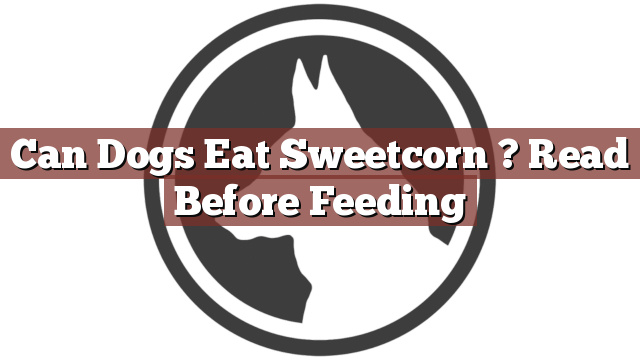Understanding Your Dog’s Dietary Needs
As responsible pet owners, it is crucial for us to understand our dog’s dietary needs. A balanced and nutritious diet plays a significant role in maintaining their overall health and well-being. While dogs primarily thrive on a diet rich in animal proteins, they can also benefit from certain fruits and vegetables. However, it is essential to be aware of which human foods are safe for our furry friends, as some can be harmful or even toxic to them.
Can Dogs Eat Sweetcorn? Read Before Feeding
Can dogs eat sweetcorn? This is a common question that pet owners often ask. The answer, in this case, is yes. Sweetcorn is generally safe for dogs to consume in moderation. It provides several health benefits due to its high fiber content, which aids in digestion and can prevent constipation. Additionally, sweetcorn contains essential vitamins such as vitamin C and folate, along with minerals like potassium and magnesium.
However, before feeding sweetcorn to your dog, there are a few important considerations to keep in mind. First, it is crucial to remove the kernels from the cob, as the cob itself can be a choking hazard for dogs. Secondly, it is advisable to cook the sweetcorn before feeding it to your furry friend, as raw corn may be difficult for them to digest. Lastly, be mindful of any seasonings or butter that may be added to the sweetcorn, as excessive salt or unhealthy fats can be harmful to dogs.
Pros and Cons of Feeding Sweetcorn to a Dog
Feeding sweetcorn to your dog has its pros and cons. On the positive side, sweetcorn is a good source of dietary fiber, which aids in digestion and can regulate bowel movements. It also contains beneficial vitamins and minerals that contribute to your dog’s overall health. However, it is important to keep in mind that dogs are primarily carnivorous animals, and their bodies are designed to efficiently process meat-based diets. Therefore, while sweetcorn can be a healthy addition to their diet, it should not replace the main source of their nutrition.
On the negative side, some dogs may have difficulty digesting corn, leading to stomach upset or even allergies in certain cases. It is important to introduce sweetcorn into your dog’s diet gradually and monitor their response to ensure they do not experience any adverse reactions. Additionally, sweetcorn should only be given as a treat or occasional addition to their regular meals. Overfeeding sweetcorn can lead to weight gain or other health issues, so portion control is crucial.
Conclusion: Is Sweetcorn a Safe Food for Dogs?
In conclusion, sweetcorn is generally safe for dogs to eat. It can provide them with essential nutrients, fiber, and added variety in their diet. However, it is essential to follow certain guidelines to ensure the safety and well-being of your furry friend. Remember to remove the kernels from the cob, cook the sweetcorn, and avoid adding any harmful seasonings. Additionally, monitor your dog’s response and introduce sweetcorn gradually. By doing so, you can enjoy the benefits of sweetcorn as a delightful and nutritious treat for your beloved pet.
Thank you for taking the time to read through our exploration of [page_title]. As every dog lover knows, our furry friends have unique dietary needs and responses, often varying from one canine to another. This is why it's paramount to approach any changes in their diet with caution and knowledge.
Before introducing any new treats or making alterations to your dog's diet based on our insights, it's crucial to consult with a veterinarian about [page_title]. Their expertise ensures that the choices you make are well-suited to your particular pet's health and well-being.
Even seemingly harmless foods can sometimes lead to allergic reactions or digestive issues, which is why monitoring your dog after introducing any new food item is essential.
The content provided here on [page_title] is crafted with care, thorough research, and a genuine love for dogs. Nevertheless, it serves as a general guideline and should not be considered a substitute for professional veterinary advice.
Always prioritize the expert insights of your veterinarian, and remember that the health and happiness of your furry companion come first.
May your journey with your pet continue to be filled with joy, love, and safe culinary adventures. Happy reading, and even happier snacking for your canine friend!

